Following our initial blog on the subject of Internet sites and domains seeking to profit from the ongoing COVID-19 health crisis, we dug deeper into the topic. Appdetex looked at keywords within domain names, website content, social media handles and marketplace listings that would likely be related to the coronavirus outbreak. Though the result of this work is related to a very limited set of keywords, the quantities of results delivered are statistically significant in many cases. At the close of this blog are some recommendations for brands and their enforcement teams as they face potential abuse as a result of the pandemic.
Platforms doing their part
Large internet platforms are doing their best to stop abuse on their platforms, and their work is obvious from the number of listings, social handles, and apps that have been removed; however, brands need to continue to be vigilant and help stop the tide of those who are capitalizing on the grief caused by the current COVID-19 situation.
Domains and Websites
In our scan of domain names and websites, we found a total of over 10,000 domain names using terms related to the current health crisis. While nearly 7,600 of them have been registered since November of 2019, perhaps in anticipation of the flu season, nearly 5,200 were registered during the month of February.
This trend shows no signs of abating. In the first week of March (ending Friday, March 6), we noted 988 domain name registrations, including keywords related to the virus, indicating that March was trending to match or exceed the number of registrations made in February.
While many of the names do not resolve to actual websites, those that are not parked or otherwise non-resolving often peddle goods like masks, gowns, and anti-bacterial agents.
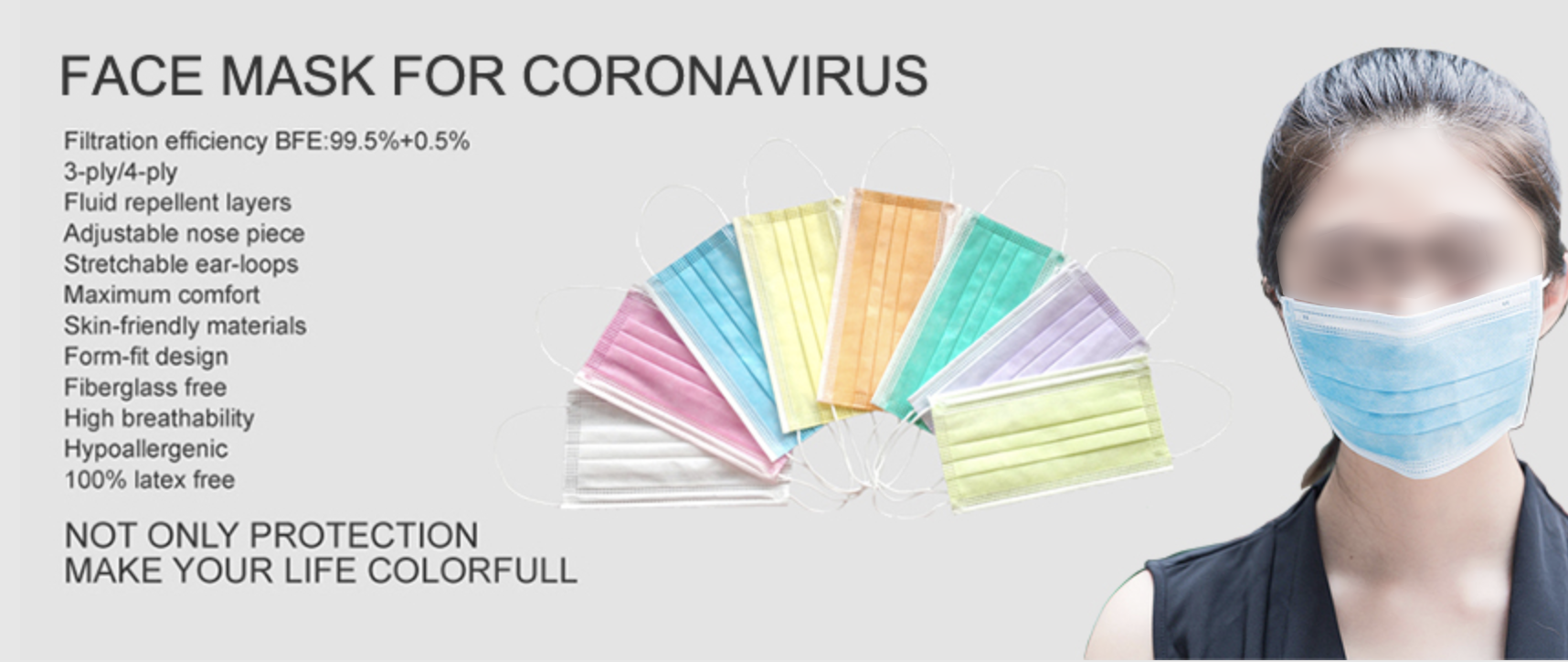
Internet Marketplaces
Using the same keywords as we did in our search for domain names related to the new coronavirus, we scanned internet marketplaces and found a much smaller number of listings related to these keywords. As of Friday, March 6, we found less than 20 active listings; four days later, on Tuesday, March 9, we found that many of those were inactive. This indicates that these marketplaces have been diligent in removing listings and sellers who have sought to profit from the current crisis. However, the few live listings we found are selling masks of dubious origin or quality, or, unfortunately, at highly inflated prices.
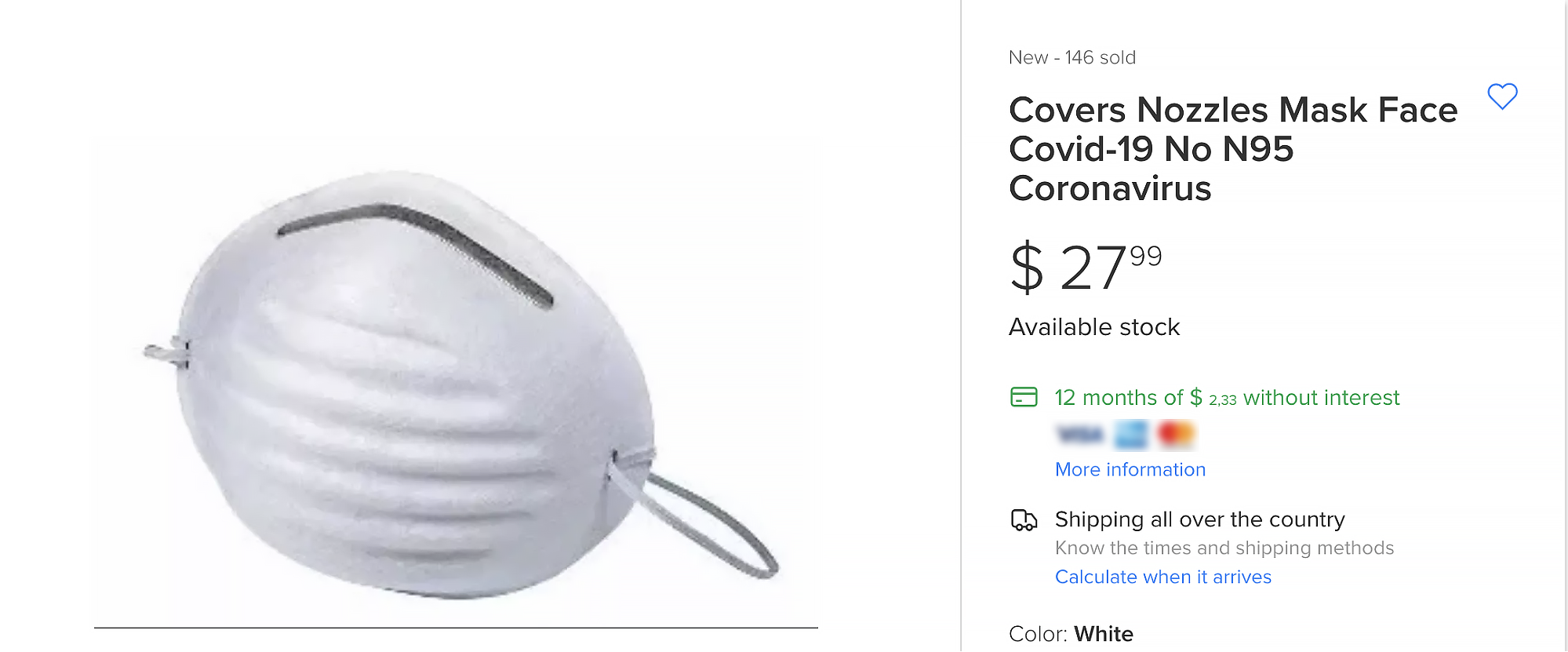
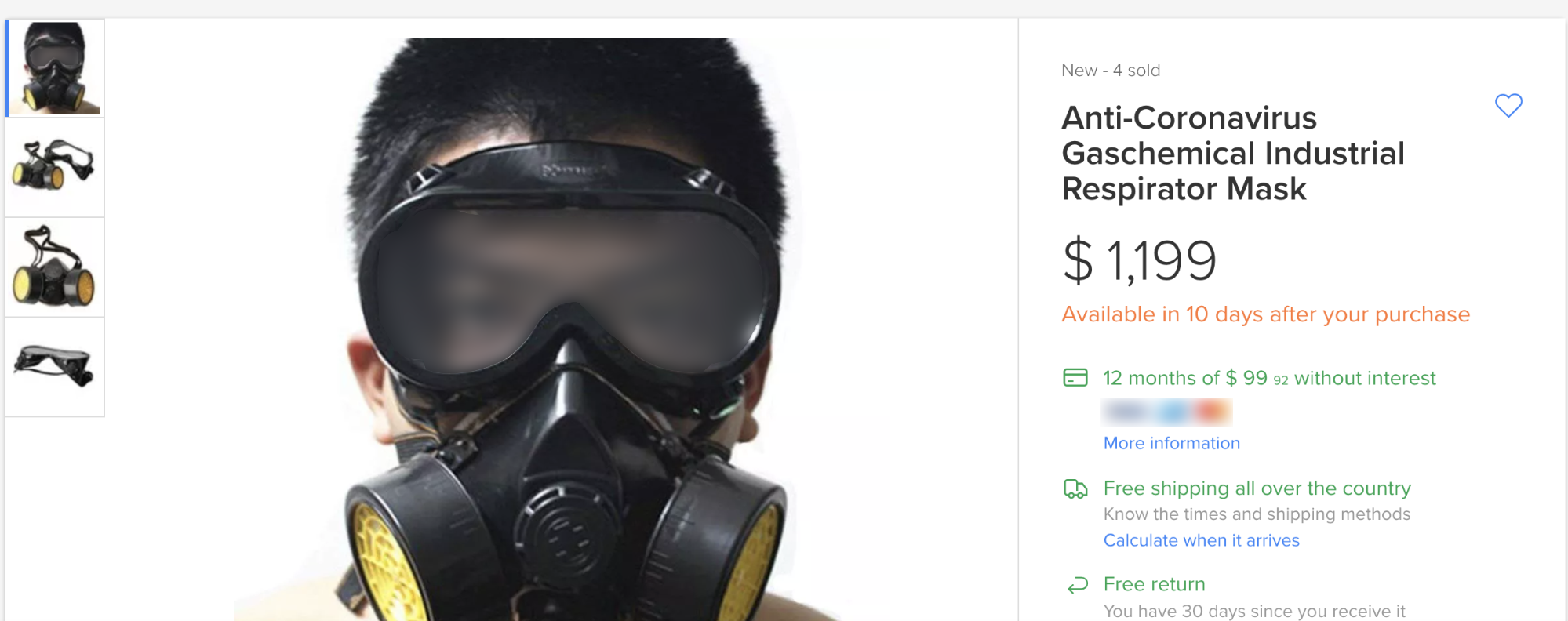
App Stores
Similarly, there are far fewer apps than domain names related to the COVID-19 health situation. We found fewer than 500 apps across all the major app marketplaces; 10-20% of those have already been removed or disabled by the largest app stores. Many of the apps that are live have functionality that is focused on the geographical spread of the disease or its modalities. Some of these apps are purely informational, while others are clearly crafted to use the hype around the crisis to drive customer acquisition or otherwise gather personal data.
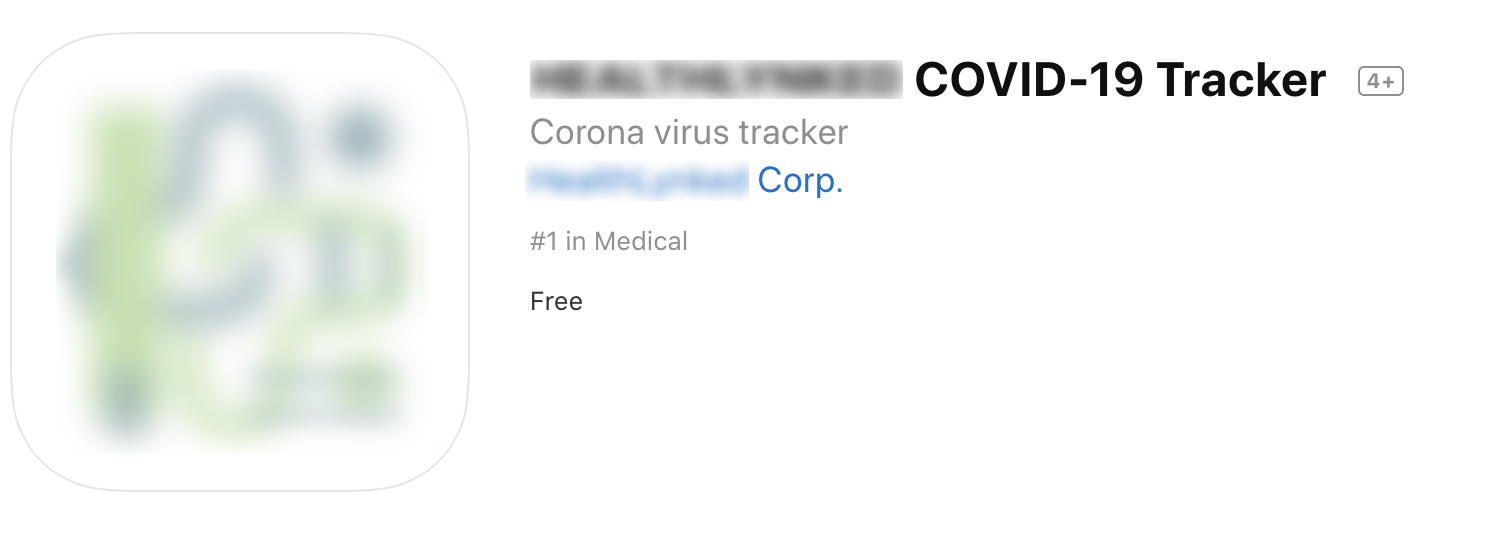
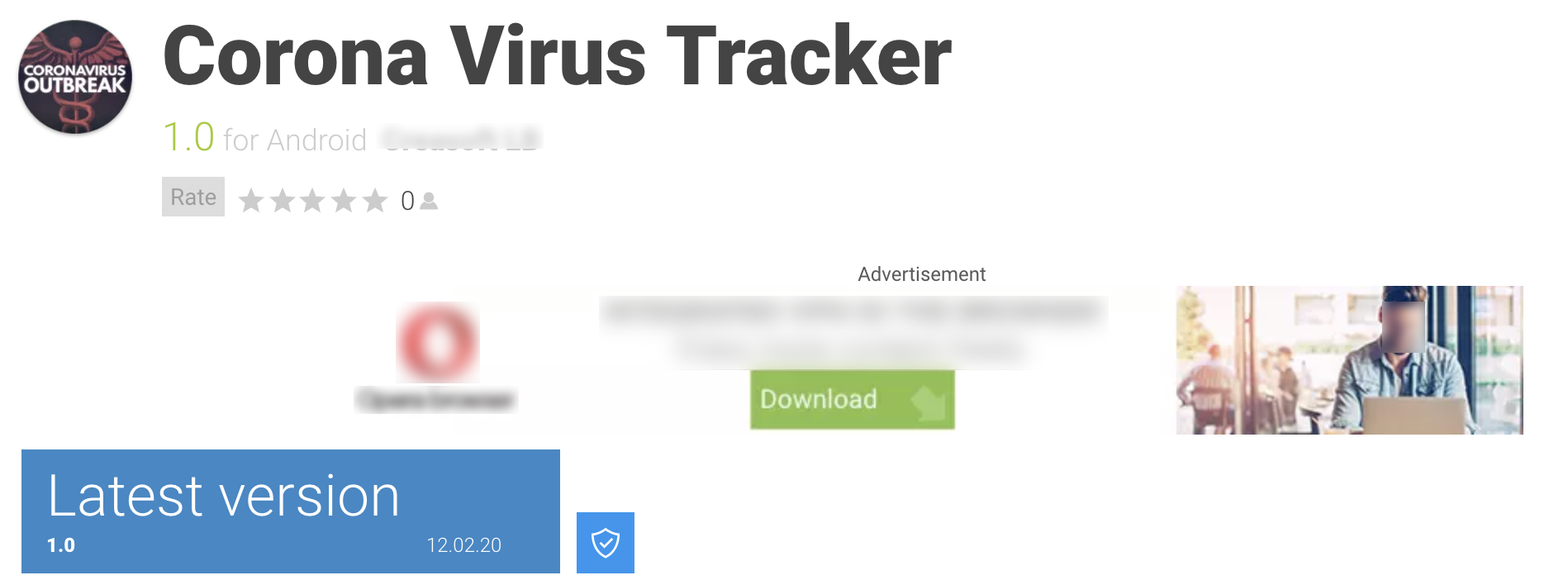
Social Media Handles
On the top-trafficked social media sites, we found just over 300 social handles that appear to take advantage of the new coronavirus. Many of these are being used to promote protective gear and antiviral agents. However, compared to the scale of domain and website abuse targeting consumers, social media represents a small footprint for potential abuse. To their credit, platforms are removing sensational social handles and posts very quickly.
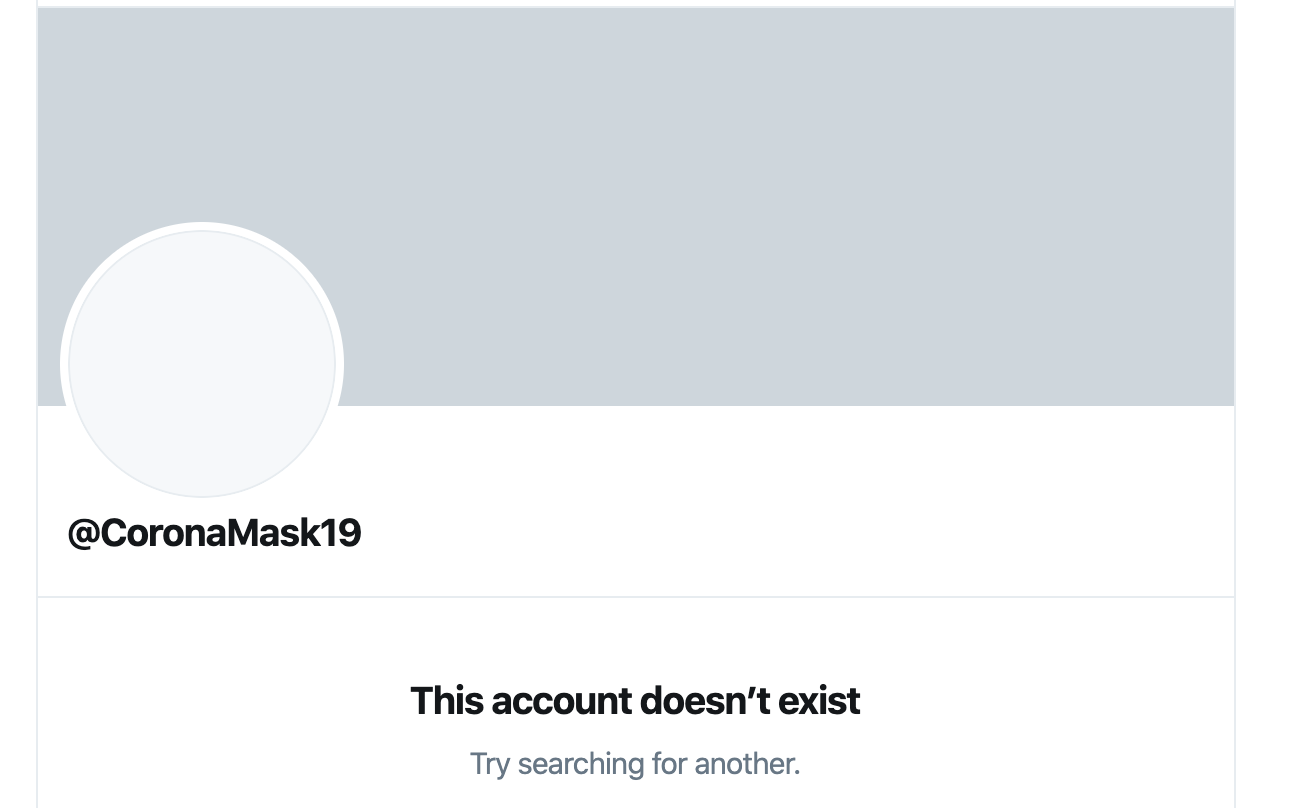
Given the mode of transmission for COVID-19, the scale and scope of work-from-home directives, and other self-quarantine methods, many more consumers will be depending upon the digital world to supply themselves with essentials -- so protecting your brand’s digital channels should be a high priority. Both brands and underlying platforms should be focusing on mitigating the use of their trademarks and infrastructure to promote malicious activity or otherwise take advantage of their customers and users.
Recommendations to fight brand abuse during this crisis:
- Expand your brand-focused searches to include terms that are likely to exploit current health concerns.
- Use platforms' standard abuse reporting systems to help them reduce their and your own users’ harm.
- If your product is being used in “price gouging” scams, cite local and national law that prohibits such activity in your complaints to platforms.
- Communicate with your customers and users about how to avoid the common scams you’ve seen malicious actors use.